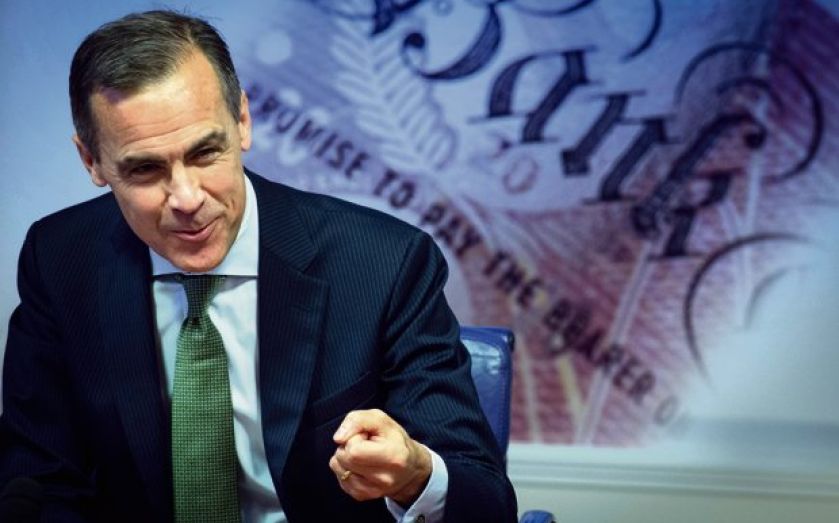Inflation at target after four years riding high

INFLATION finally fell back to its two per cent target in December, official data showed yesterday, after more than four years of running too high.
The drop from 2.1 per cent will help Bank of England governor Mark Carney’s credibility, boosting his reputation as inflation has dropped since he took the role in the summer.
However, the squeeze on living standards is still continuing. Consumer prices continue to rise more than twice as fast as wages – weekly pay increased by just 0.9 per cent in the year to October, the latest available figures.
And the cost of living increased even more quickly on the retail price index which rose by 2.7 per cent in the year, up from 2.6 per cent in the year to November.
Economists expect the strong resurgence in the economy to start to feed through into prices, meaning inflation could again rise above the Bank of England’s target.
“The UK economy is growing strongly, unemployment is falling fast and, after years of falling real wages, a tighter labour market could lead to a pick-up in wage inflation, which in turn would tend to put inflation back up again,” said Steven Bell from F&C Investments.
“This year should see good growth and low inflation in the UK but, in the process, expectations that interest rates will have to rise in 2015 are set to increase.”
The Bank of England has promised it will only consider raising interest rates once unemployment falls back to seven per cent, a rate that is rapidly approaching as the economy returns to growth.
Inflation’s fall back to the two per cent target in December, from 2.1 per cent in November, was led by food prices.
Food price inflation slowed from three per cent to 2.2 per cent, with meat slowing from 4.1 to 2.5 per cent and fish falling from 7.1 to 5.2 per cent.
Price inflation for recreational items also slowed from one per cent to 0.2 per cent, while the cost of cameras plunged 14.1 per cent in the year.
However, some prices accelerated – alcoholic drinks prices rose 3.3 per cent, up from the 3.1 per cent in the year to November.